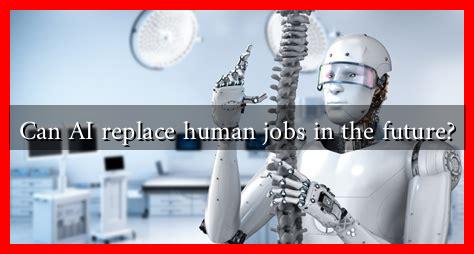-
Table of Contents
Can AI Replace Human Jobs in the Future?
The rapid advancement of artificial intelligence (AI) has sparked a heated debate about its potential to replace human jobs. As AI technologies become increasingly sophisticated, many industries are beginning to integrate these systems into their operations. This article explores the implications of AI on the job market, examining both the potential for job displacement and the opportunities for job creation.
The Current Landscape of AI in the Workforce
AI is already making significant inroads into various sectors, including manufacturing, healthcare, finance, and customer service. According to a report by McKinsey, up to 800 million jobs could be displaced by automation by 2030, affecting nearly one-fifth of the global workforce. However, the same report suggests that AI could also create new jobs, particularly in fields that require human oversight and creativity.
Jobs at Risk of Automation
While AI has the potential to enhance productivity, certain jobs are more susceptible to automation than others. Here are some roles that are at a higher risk:
- Manufacturing Jobs: Routine tasks such as assembly line work are increasingly being performed by robots.
- Data Entry and Administrative Roles: AI can efficiently handle data processing and management tasks.
- Customer Service: Chatbots and virtual assistants are capable of managing customer inquiries without human intervention.
- Transportation: Self-driving vehicles could disrupt jobs in trucking and delivery services.
Jobs That AI Cannot Replace
Despite the potential for job displacement, there are numerous roles that AI is unlikely to fully replace. These jobs often require emotional intelligence, creativity, and complex problem-solving skills. Examples include:
- Healthcare Professionals: Doctors and nurses provide care that requires empathy and human interaction.
- Creative Roles: Artists, writers, and designers rely on human creativity and cultural understanding.
- Skilled Trades: Electricians, plumbers, and carpenters perform tasks that require hands-on skills and adaptability.
- Management Positions: Leaders must navigate complex interpersonal dynamics and strategic decision-making.
The Role of AI in Job Creation
While AI may displace certain jobs, it also has the potential to create new opportunities. The World Economic Forum predicts that by 2025, 97 million new roles may emerge that are more adapted to the new division of labor between humans and machines. Some areas where job creation is expected include:
- AI Development and Maintenance: As AI systems become more prevalent, the demand for AI specialists will grow.
- Data Analysis: Professionals who can interpret and analyze data generated by AI systems will be in high demand.
- Cybersecurity: With increased reliance on technology, the need for cybersecurity experts will rise.
- Education and Training: As industries evolve, there will be a need for educators to train the workforce in new skills.
Preparing for the Future Job Market
To mitigate the impact of AI on employment, it is crucial for individuals and organizations to adapt. Here are some strategies to prepare for the future job market:
- Upskilling and Reskilling: Workers should seek opportunities to learn new skills that complement AI technologies.
- Emphasizing Soft Skills: Skills such as communication, teamwork, and emotional intelligence will become increasingly valuable.
- Embracing Lifelong Learning: Continuous education will be essential in a rapidly changing job landscape.
Conclusion
The question of whether AI can replace human jobs in the future is complex and multifaceted. While certain roles are at risk of automation, AI also presents opportunities for job creation in emerging fields. By focusing on upskilling and adapting to new technologies, workers can position themselves for success in an evolving job market. Ultimately, the future of work will likely be characterized by a collaboration between humans and AI, rather than outright replacement.
For further insights on the impact of AI on the workforce, you can explore resources from the World Economic Forum.


